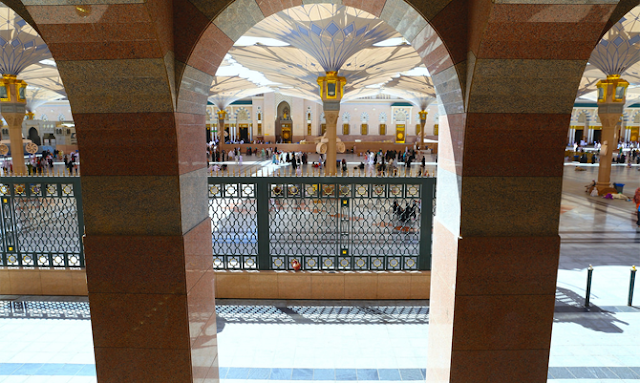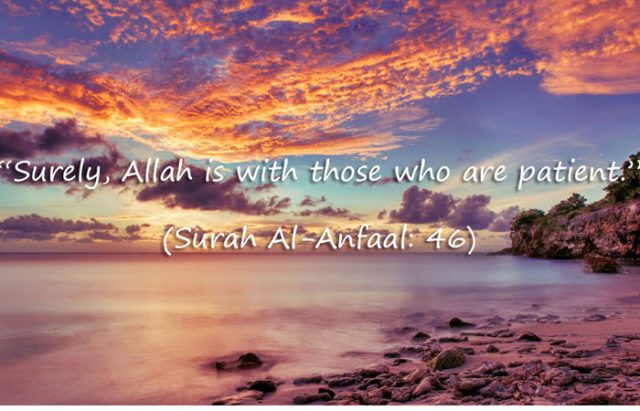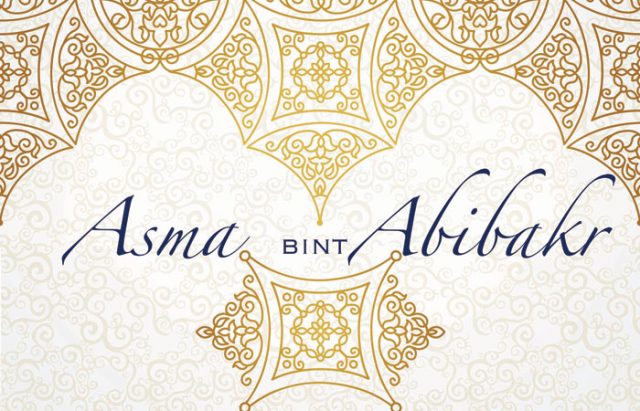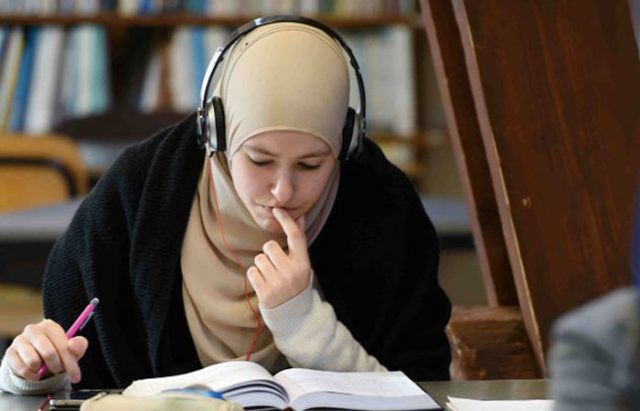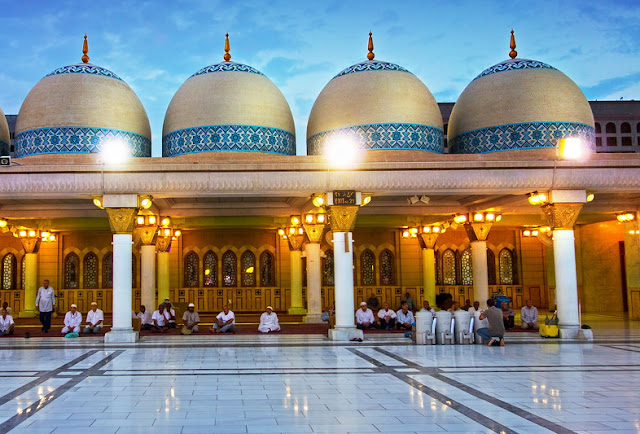Highlight Islam’s beauty as a religion of moderation
An eminent scholar stresses the need for exerting all efforts to Highlight Islam’s beauty as a religion of moderation.
“There should be serious efforts to disseminate
Islam’s sublime principles of universal brotherhood, compassion, and tolerance, together with practicing the divine religion in its real form in all walks of life,” said Dr. Bahauddeen Muhammad Nadwi, vice chancellor of Darul Huda Islamic University, from the southern Indian state of Kerala.
Speaking to Saudi Gazette, he emphasized that presenting the true image of Islam is the best way to counter Islamophobia.
“The phenomenon of Islamophobia started out in the Western countries especially in America and Europe, but now it has spread its wings to most parts of the world. We have to become true models of Islam in front of our neighbors and there should be concerted efforts to give top priority to solve their problems and join with them in their happiness and sorrow,” he said.
He also pointed out the growing intolerance and misunderstanding among members of the pluralist society in India, the second most populous nation with 1.25 billion people.
Nadwi said it is high time to highlight the humanitarian face of Islam as practiced by Prophet Muhammad (peace be upon him) in the pluralist society of Madinah when he landed there. The exemplary examples set by the Prophet (peace be upon him) in his dealings with his neighbors including Jews and paganists found a place in the annals of history as the best models of good neighborliness.
The scholar also cited examples from the life of Islamic scholars like Imam Abu Hanifa, the founder of the Hanafi school of thought, about the dealings of Muslims with their neighbors in a pluralist society.
“A non-Muslim neighbor of Abu Hanifa wanted to sell his house. When the neighbor hiked the price by almost double the market rate, the buyer asked why he demanded such an exorbitant rate. The neighbor said that half of the money is the real price for his house, and the next half is for having Imam Abu Hanifa for a neighbor,” said Nadwi.
“On another occasion, when Abu Hanifa heard that his neighbor, a drunkard, was arrested, the Imam went to the police station to release him because of his duty as a neighbor,” Nadwi pointed out.
Islamic educational institutions must play a vital role in highlighting the tolerance and moderation in Islam. Nadwi was in the Kingdom recently for a short visit after attending the 7th general conference of the Federation of the Universities of the Islamic World held at the headquarters of the Islamic Educational, Scientific, and Cultural Organization in Rabat, Morocco.
“The conference emphasized the role of Islamic universities in countering terrorism and Islamophobia through presenting the true image of Islam and removing misgivings about the divine religion,” he said.
The conference discussed a host of issues including the betterment of teaching standards of universities and embracing advanced technology and methodology.
Nadwi met Morocco’s Higher Education Minister, Dr. Jameela Musalli, and Awqaf Minister Dr. Ahmad Tawfeeq on the sidelines of the conference.
“We have reached agreements to send our students for higher studies to Ibn Tofail University and Sidi Mohamed Ben Abdellah University in Morocco,” the scholar said, adding that he visited more than 40 countries to attend Islamic conferences.
Nadwi said Darul Huda Islamic University is one among a couple of Indian universities which have a membership in FUIW, which is an umbrella organization of both Islamic and non-Islamic universities from the Muslim world as well as from some Muslim minority countries.
“The conference provided a golden opportunity for close interaction and exchange of communications with several prestigious universities from the Islamic world,” he said.
Darul Huda Islamic University joined FUIW in 2010. There are 314 member universities and higher institutes under FUIW.
Nadwi, who is a holder of a fellowship from a Malaysian university and several other honors, said that Darul Huda is also a member of the Cairo-based League of Islamic Universities.
Nadwi said Darul Huda has signed cooperation agreements for student and faculty exchange with several other international Islamic universities, including Al-Fateh University of Libya, Sudan’s Omdurman Islamic University and Alzaiem Alazhari University, and International Islamic University of Malaysia. The university also is affiliated with several other renowned Indian universities.
Nadwi recalled the amazing story of how Darul Huda grew into a leading Islamic university in southern India from humble beginnings in 1986.
“Darul Huda provides an academic meeting point between Islamic education and modern branches of knowledge. Through rigorous and continuous teaching and training programs, it disseminates Islam’s lofty values and enables better understanding of the Islamic culture and traditions,” he said while noting that the university has been successful in producing Islamic scholars who are well-equipped to present the true image of Islam and remove misgivings about it.
“The vision of Darul Huda since its inception three decades ago was empowerment of the community, and we have had an excellent track record in this field, praise be to God,” Nadwi said.
There are more than 2,000 graduates from Darul Huda working in various parts of the world.
One graduate of Darul Huda went on to study and graduate from Leiden University, the oldest university in the Netherlands. Other graduates from Darul Huda are working as journalists in print and electronic media, including BBC and Al-Jazeera Channel.
The syllabus of the university includes both religious and material education. The Islamic subjects include Qur’an, Hadith, tafseer, fiqh, daawa, comparative religions, and philosophy. Several Islamic colleges started accepting our curriculum since 1990 and now there are 27 Islamic colleges that follow the syllabus of Darul Huda.
A student takes 12 years to complete courses after joining the university in the sixth standard of school education. At present, there are 1,500 students at Darul Huda and these include 224 girls who study at the campus of Fatima Zahra Women’s College.
“Apart from providing a comprehensive educational system, we also focus on improving talents and skills of students in extracurricular activities such as speech, creative writing, and the like,” Nadwi said.
After completion of the coursework, graduates must complete two years of mandatory work in educational or other fields deemed acceptable by the university, after which they will receive their degrees. Students give back and they serve the community and the nation, in return for their 12-year-long free education.
Nadwi said that Darul Huda is one of the very few higher educational institutes in Kerala which gives priority to teaching Urdu language, the most widely spoken language of Muslims in the Indian subcontinent. A personal experience prompted him to introduce Urdu language teaching at the institution.
“While I was 12 years old and studying in 7th standard, I happened to meet a North Indian Muslim truck worker who wondered how I could be a Muslim without knowing Urdu, and this was the temptation for me to learn Urdu. Then, I went to Darul Uloom Lucknow, a famous Islamic seat of learning in north India, for higher studies, mainly Urdu. I traveled throughout Uttar Pradesh and other places in north India where the plight of Muslims in all walks of life deeply touched me,” recalls Nadwi.
There are currently around 300 students in the Urdu section at Darul Huda.
“Many Urdu-speaking poor people from these states regularly send their children for education at Darul Huda after our continuous contacts with them. There are about 20 Urdu teachers, mostly graduates from the university. We are providing education totally free of charge, accepting donations only from affluent parents,” Nadwi said.
“We focus on improving the lot of the Muslims who are marginalized in all walks of life in some north Indian states,” Nadwi said.
There are many philanthropists and Darul Huda graduates working in the Gulf States who support Darul Huda to implement these projects as well as to run the reputable institution in a professional and high quality manner.
British haj travel announced 5 star Umrah packages 2017. So visit our website & select your own Umrah packages.
source: saudigazette.com.sa
